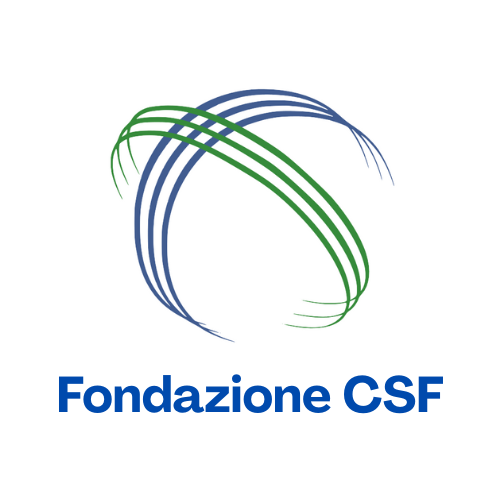Fabio Maina
Commentary no. 230 - 12 October 2021
A first pivot in European defence integration emerged five years ago. Tensions to the South and the East, but particularly Donald Trump’s election and Brexit, undermined the Europeans’ certainties about US reliability and contributed to the growing idea that the EU should be able to intervene autonomously when necessary.
In June 2016 – just a few hours after the Brexit referendum results were announced – the then-HR/VP Federica Mogherini published the new EU Global Strategy which included, among its main points, the strengthening of European defence and of the EU as a ‘security community’ The following years saw the creation, revision or launch of important tools which, when considered together, indicate a movement towards the collaborative development of European military capabilities.
The existing Capability Development Plan (CDP) was revised in 2018 to account for the EU’s Global Strategy, and identified the priorities on which Member States (MS) should focus. The Coordinated Annual Review on Defence (CARD) provided an outlook on European defence and its trends, while also identifying cooperation opportunities for capability development. The Permanent Structured Cooperation (PESCO), launched in December 2017, represents one of the available fora in which MS can develop these capabilities via projects, which can then receive increased funding from the new European Defence Fund (EDF), created in June 2017. This framework is intended as a complement, and not an alternative, to NATO. As official documents consistently reiterate, NATO remains the foundation for many MS’ collective defences. The point used to reassure the Americans about the EU’s good intentions is that European defence will contribute to a fairer sharing of the burden, and thus to a healthier transatlantic relationship.
And that is how it should be; the EU is – as the “Protecting Europe” analysis demonstrates– still very far from attaining the level of ambition it has set itself regarding crisis management. At the moment, an autonomous EU territorial defence is still a mirage, making the American security guarantee indispensable. Furthermore, besides more recent events, there are several ongoing challengesthat require transatlantic cooperation. As the Europeans need the Americans for their territorial defence, the Americans need the Europeans to face these challenges and contain China and Russia.
However, around four years from their launch, the new EU defence tools appear to be fostering scepticism, with commentators going as far as defining PESCO a “half-failure”, plagued by many problems, starting from the persistence of a “culture of non-compliance” among participating States which, thanks to PESCO’s ‘binding commitments’ generic nature, tend to support the prioritisation of national defence objectives. There is no precise objective for PESCO, aside from the hypothetical future definition of a full-spectrum force package. As of today, PESCO comprises 46 projects (plus one, which was closed due to duplications), few of which have significant strategic relevance. One of the most relevant projects is the MALE RPAS, which was already in its design phase before the launch of PESCO. It is not clear then what added value, as of today, PESCO is bringing to European defence; many MS’ wishes are more apparent – to obtain EDF funds while pursuing purely national priorities. The EDF itself was also considerably reduced in the EU Multiannual Financial Framework (MFF) for the 2021-2027 period: €8 bn. instead of the initially proposed €14 bn.
To ensure that the EU and its MS are perceived as credible actors on the international stage, European defence must be more than a simple forum for cooperation entirely dependent on participating states’ goodwill. A clearer vision of what the EU wants to do militarily, and how to obtain what it needs, is needed. The Strategic Compass, currently in development, represents in this respect a crucial opportunity, not to be missed. After the conclusion of its first phase, focused on threat analysis, a draft of the outcome document of the second phase – a dialogue process aimed at reaching a common understanding of the EU’s role as security provider – is awaited for November, with the final version expected to arrive in March 2022. Along with security, European capability development and the EU-NATO relationship will also feature among its topics.
As for the development of capabilities, the Strategic Compass should lead to the simplification of the EU’s defence planning process, which is currently too complex, non-linear and scarcely considered by MS when planning their national defences. The objective should not only be to make the process capable of exerting a degree of influence on national defence planning, but also to facilitate further synchronisation with the more homogeneous NATO Defence Planning Process (NDPP). The purpose of PESCO and the related tools must also be clarified: is it the creation of a full-spectrum force package? Considering that, with the first PESCO Strategic Review, the Council expressed its will to proceed in this direction, the answer should be yes. Consequently, PESCO should be reformed in order to become an effective tool in pursuing this objective. There are no shortages of ideas; from the classification of PESCO projects according to their strategic relevance, with EDF funding available only for the most important ones, to the creation of progress indicators and peer-reviewing mechanisms based on the National Implementation Plans that each PESCO participant updates every year.
Aside from the expectations on future EU-US cooperation inside NATO, it is an undeniable fact that the US is becoming less and less willing to engage in crisis management in the MENA area, as the withdrawal from Afghanistan indirectly shows, and also indicates that Europe has slipped down the US’s geostrategic priorities list (as demonstrated by the recent AUKUS pact, which was concluded without notifying the EU or involving France, which lost a contract for the sale of submarines to Australia). A largely common implication to be drawn is that the EU should assume responsibility for crisis management in the neighbourhood while still relying on the alliance with the US for its collective defence, to which it can contribute in the context of fairer burden sharing via European capability development. One of the Compass’ baskets is precisely dedicated to partnerships, including EU-NATO and EU-US.
The EU has already missed too many opportunities to define a ‘European Defence Union’, and continues to suffer the consequences. The Strategic Compass represents an opportunity not only to reaffirm and further clarify the EU’s role in the security sector, but also to ensure that both old and new defence instruments follow the right direction, and to define the EU’s role inside NATO. As the Hertie School - Jacques Delors Centre underlines, the Compass will succeed only if it is precise enough and followed by concrete action. Failure will mean an ever-growing number of ‘AUKUS’ cases, in which the Europeans will be side-lined as they will not be deemed sufficiently serious, and of ‘Afghanistan’ cases, in which regional powers and non-state actors – with interests and visions of world politics even radically opposed to ours – will be the only ones to benefit from Europe’s inability to act.
* Master student in International Science - European Studies at the University of Torino.

 En
En  It
It 


